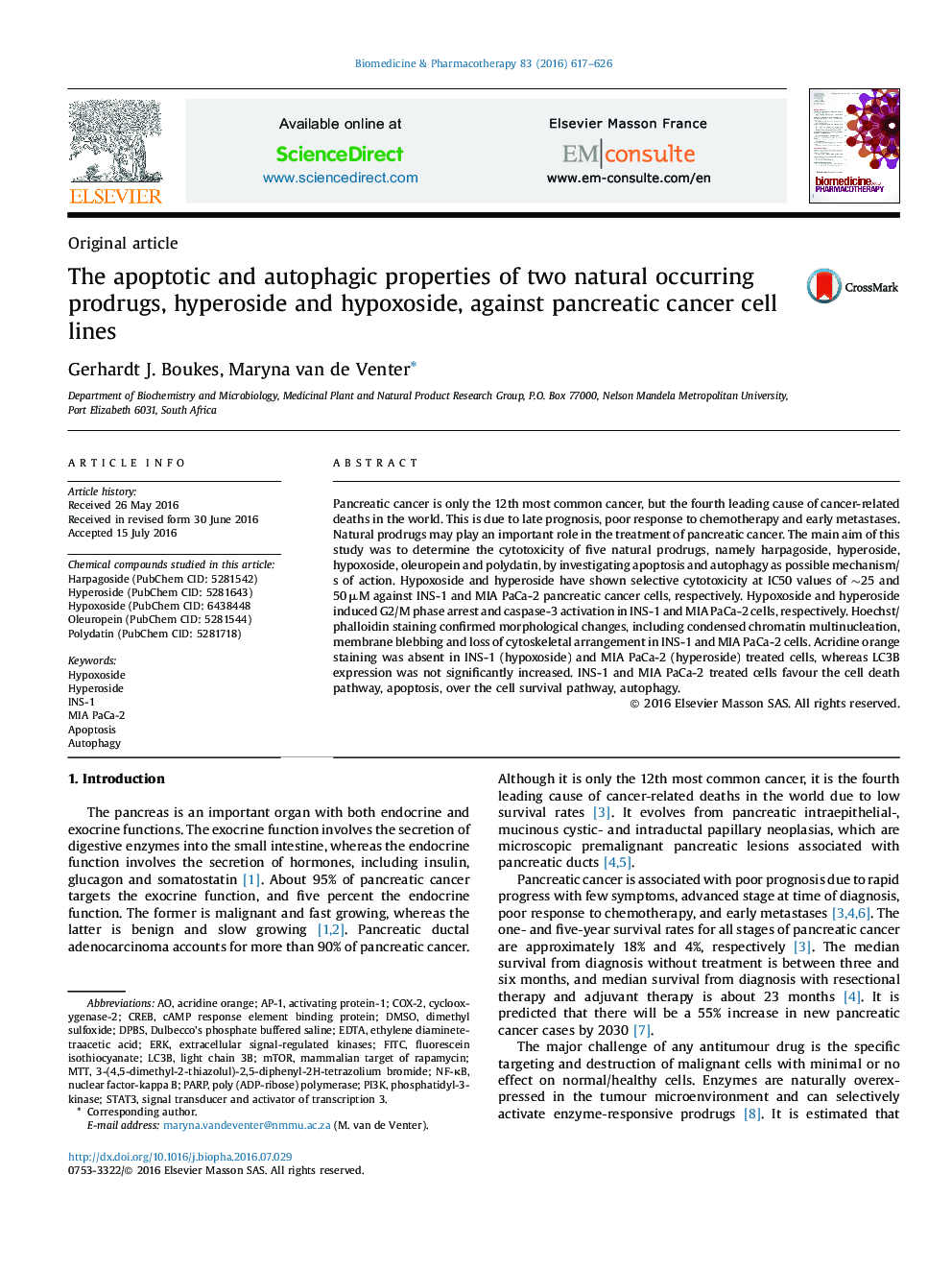| Article ID | Journal | Published Year | Pages | File Type |
|---|---|---|---|---|
| 2524708 | Biomedicine & Pharmacotherapy | 2016 | 10 Pages |
Pancreatic cancer is only the 12th most common cancer, but the fourth leading cause of cancer-related deaths in the world. This is due to late prognosis, poor response to chemotherapy and early metastases. Natural prodrugs may play an important role in the treatment of pancreatic cancer. The main aim of this study was to determine the cytotoxicity of five natural prodrugs, namely harpagoside, hyperoside, hypoxoside, oleuropein and polydatin, by investigating apoptosis and autophagy as possible mechanism/s of action. Hypoxoside and hyperoside have shown selective cytotoxicity at IC50 values of ∼25 and 50 μM against INS-1 and MIA PaCa-2 pancreatic cancer cells, respectively. Hypoxoside and hyperoside induced G2/M phase arrest and caspase-3 activation in INS-1 and MIA PaCa-2 cells, respectively. Hoechst/phalloidin staining confirmed morphological changes, including condensed chromatin multinucleation, membrane blebbing and loss of cytoskeletal arrangement in INS-1 and MIA PaCa-2 cells. Acridine orange staining was absent in INS-1 (hypoxoside) and MIA PaCa-2 (hyperoside) treated cells, whereas LC3B expression was not significantly increased. INS-1 and MIA PaCa-2 treated cells favour the cell death pathway, apoptosis, over the cell survival pathway, autophagy.
Graphical abstractFigure optionsDownload full-size imageDownload as PowerPoint slide
